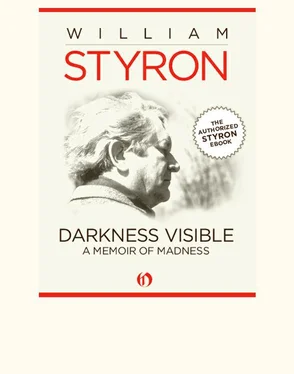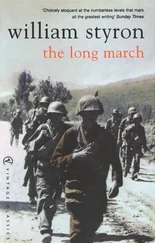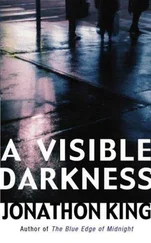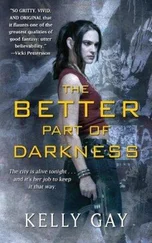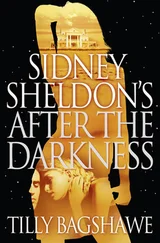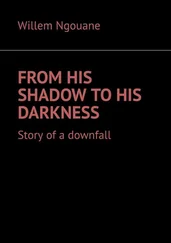William Styron - Darkness Visible
Здесь есть возможность читать онлайн «William Styron - Darkness Visible» весь текст электронной книги совершенно бесплатно (целиком полную версию без сокращений). В некоторых случаях можно слушать аудио, скачать через торрент в формате fb2 и присутствует краткое содержание. Город: New York, Год выпуска: 2010, ISBN: 2010, Издательство: Open Road Integrated Media, Жанр: Биографии и Мемуары, Психология, на английском языке. Описание произведения, (предисловие) а так же отзывы посетителей доступны на портале библиотеки ЛибКат.
- Название:Darkness Visible
- Автор:
- Издательство:Open Road Integrated Media
- Жанр:
- Год:2010
- Город:New York
- ISBN:978-1-936317-29-5
- Рейтинг книги:5 / 5. Голосов: 1
-
Избранное:Добавить в избранное
- Отзывы:
-
Ваша оценка:
- 100
- 1
- 2
- 3
- 4
- 5
Darkness Visible: краткое содержание, описание и аннотация
Предлагаем к чтению аннотацию, описание, краткое содержание или предисловие (зависит от того, что написал сам автор книги «Darkness Visible»). Если вы не нашли необходимую информацию о книге — напишите в комментариях, мы постараемся отыскать её.
Darkness Visible — читать онлайн бесплатно полную книгу (весь текст) целиком
Ниже представлен текст книги, разбитый по страницам. Система сохранения места последней прочитанной страницы, позволяет с удобством читать онлайн бесплатно книгу «Darkness Visible», без необходимости каждый раз заново искать на чём Вы остановились. Поставьте закладку, и сможете в любой момент перейти на страницу, на которой закончили чтение.
Интервал:
Закладка:
It was at some point during the course of these musings that the sign HÔTEL WASHINGTON swam across my vision, bringing back memories of my long-ago arrival in the city, along with the fierce and sudden realization that I would never see Paris again. This certitude astonished me and filled me with a new fright, for while thoughts of death had long been common during my siege, blowing through my mind like icy gusts of wind, they were the formless shapes of doom that I suppose are dreamed of by people in the grip of any severe affliction. The difference now was in the sure understanding that tomorrow, when the pain descended once more, or the tomorrow after that—certainly on some not-too-distant tomorrow—I would be forced to judge that life was not worth living and thereby answer, for myself at least, the fundamental question of philosophy.
III
TO MANY OF US WHO KNEW ABBIE HOFFMAN EVEN slightly, as I did, his death in the spring of 1989 was a sorrowful happening. Just past the age of fifty, he had been too young and apparently too vital for such an ending; a feeling of chagrin and dreadfulness attends the news of nearly anyone’s suicide, and Abbie’s death seemed to me especially cruel. I had first met him during the wild days and nights of the 1968 Democratic Convention in Chicago, where I had gone to write a piece for The New York Review of Books, and I later was one of those who testified in behalf of him and his fellow defendants at the trial, also in Chicago, in 1970. Amid the pious follies and morbid perversions of American life, his antic style was exhilarating, and it was hard not to admire the hell-raising and the brio, the anarchic individualism. I wish I had seen more of him in recent years; his sudden death left me with a particular emptiness, as suicides usually do to everyone. But the event was given a further dimension of poignancy by what one must begin to regard as a predictable reaction from many: the denial, the refusal to accept the fact of the suicide itself, as if the voluntary act—as opposed to an accident, or death from natural causes—were tinged with a delinquency that somehow lessened the man and his character.
Abbie’s brother appeared on television, grief-ravaged and distraught; one could not help feeling compassion as he sought to deflect the idea of suicide, insisting that Abbie, after all, had always been careless with pills and would never have left his family bereft. However, the coroner confirmed that Hoffman had taken the equivalent of 150 phenobarbitals. It’s quite natural that the people closest to suicide victims so frequently and feverishly hasten to disclaim the truth; the sense of implication, of personal guilt—the idea that one might have prevented the act if one had taken certain precautions, had somehow behaved differently—is perhaps inevitable. Even so, the sufferer—whether he has actually killed himself or attempted to do so, or merely expressed threats—is often, through denial on the part of others, unjustly made to appear a wrongdoer.
A similar case is that of Randall Jarrell—one of the fine poets and critics of his generation—who on a night in 1965, near Chapel Hill, North Carolina, was struck by a car and killed. Jarrell’s presence on that particular stretch of road, at an odd hour of the evening, was puzzling, and since some of the indications were that he had deliberately let the car strike him, the early conclusion was that his death was suicide. Newsweek, among other publications, said as much, but Jarrell’s widow protested in a letter to that magazine; there was a hue and cry from many of his friends and supporters, and a coroner’s jury eventually ruled the death to be accidental. Jarrell had been suffering from extreme depression and had been hospitalized; only a few months before his misadventure on the highway and while in the hospital, he had slashed his wrists.
Anyone who is acquainted with some of the jagged contours of Jarrell’s life—including his violent fluctuations of mood, his fits of black despondency—and who, in addition, has acquired a basic knowledge of the danger signals of depression, would seriously question the verdict of the coroner’s jury. But the stigma of self-inflicted death is for some people a hateful blot that demands erasure at all costs. (More than two decades after his death, in the Summer 1986 issue of The American Scholar, a one time student of Jarrell’s, reviewing a collection of the poet’s letters, made the review less a literary or biographical appraisal than an occasion for continuing to try to exorcise the vile phantom of suicide.)
Randall Jarrell almost certainly killed himself. He did so not because he was a coward, nor out of any moral feebleness, but because he was afflicted with a depression that was so devastating that he could no longer endure the pain of it.
This general unawareness of what depression is really like was apparent most recently in the matter of Primo Levi, the remarkable Italian writer and survivor of Auschwitz who, at the age of sixty-seven, hurled himself down a stairwell in Turin in 1987. Since my own involvement with the illness, I had been more than ordinarily interested in Levi’s death, and so, late in 1988, when I read an account in The New York Times about a symposium on the writer and his work held at New York University, I was fascinated but, finally, appalled. For, according to the article, many of the participants, worldly writers and scholars, seemed mystified by Levi’s suicide, mystified and disappointed. It was as if this man whom they had all so greatly admired, and who had endured so much at the hands of the Nazis—a man of exemplary resilience and courage—had by his suicide demonstrated a frailty, a crumbling of character they were loath to accept. In the face of a terrible absolute—self-destruction—their reaction was helplessness and (the reader could not avoid it) a touch of shame.
My annoyance over all this was so intense that I was prompted to write a short piece for the op-ed page of the Times. The argument I put forth was fairly straightforward: the pain of severe depression is quite unimaginable to those who have not suffered it, and it kills in many instances because its anguish can no longer be borne. The prevention of many suicides will continue to be hindered until there is a general awareness of the nature of this pain. Through the healing process of time—and through medical intervention or hospitalization in many cases—most people survive depression, which may be its only blessing; but to the tragic legion who are compelled to destroy themselves there should be no more reproof attached than to the victims of terminal cancer.
I had set down my thoughts in this Times piece rather hurriedly and spontaneously, but the response was equally spontaneous—and enormous. It had taken, I speculated, no particular originality or boldness on my part to speak out frankly about suicide and the impulse toward it, but I had apparently underestimated the number of people for whom the subject had been taboo, a matter of secrecy and shame. The overwhelming reaction made me feel that inadvertently I had helped unlock a closet from which many souls were eager to come out and proclaim that they, too, had experienced the feelings I had described. It is the only time in my life I have felt it worthwhile to have invaded my own privacy, and to make that privacy public. And I thought that, given such momentum, and with my experience in Paris as a detailed example of what occurs during depression, it would be useful to try to chronicle some of my own experiences with the illness and in the process perhaps establish a frame of reference out of which one or more valuable conclusions might be drawn. Such conclusions, it has to be emphasized, must still be based on the events that happened to one man. In setting these reflections down I don’t intend my ordeal to stand as a representation of what happens, or might happen, to others. Depression is much too complex in its cause, its symptoms and its treatment for unqualified conclusions to be drawn from the experience of a single individual. Although as an illness depression manifests certain unvarying characteristics, it also allows for many idiosyncrasies; I’ve been amazed at some of the freakish phenomena—not reported by other patients—that it has wrought amid the twistings of my mind’s labyrinth.
Читать дальшеИнтервал:
Закладка:
Похожие книги на «Darkness Visible»
Представляем Вашему вниманию похожие книги на «Darkness Visible» списком для выбора. Мы отобрали схожую по названию и смыслу литературу в надежде предоставить читателям больше вариантов отыскать новые, интересные, ещё непрочитанные произведения.
Обсуждение, отзывы о книге «Darkness Visible» и просто собственные мнения читателей. Оставьте ваши комментарии, напишите, что Вы думаете о произведении, его смысле или главных героях. Укажите что конкретно понравилось, а что нет, и почему Вы так считаете.
